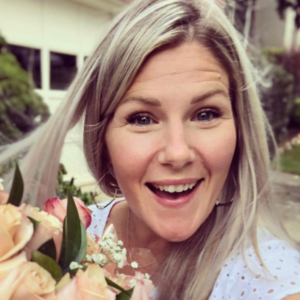By Tara Stack
It’s the most wonderful time of the year! Do you start singing when you hear that line? It is a song memorized by most people no matter how you grew up. You hear it while you’re driving, in grocery stores, and in movies. This song which came out in 1963 is so widely known by all people, and no matter what they believe in, they are led to believe it is the most wonderful time of the year.
I grew up with a mom who raised us as atheists and a stepdad who was an agnostic Jew, but that didn’t stop us from having an amazing Christmas. My stepdad would decorate our house like that of the Griswold house from National Lampoon’s Christmas Vacation, and Santa would come and leave tons of presents under the tree. We would bake cookies, sing carols, decorate the floats for our Chicago suburb Christmas parade, have our family over for a huge meal, play games…you name it—we had a tradition for it. I can’t remember a Christmas that wasn’t filled with joyful expectation of family and togetherness. When I became a believer, Christmas became the icing on the cake. There was a joyful expectation for all our traditions but also a joy that led toward the reason for the season. To say that advent season was always perfect and wrapped in a bow isn’t true, but it was pretty great! As an adult, I carried on all those traditions that my mom ingrained in us and just added a little “Christ on top.”
When mom was diagnosed with early-onset Alzheimers the year after my stepdad died of cancer, it was a reality check for our family that we would need to make the most of the Christmas season. She would now be a part of my family’s Christmas Eve services, Christmas morning gift exchanging, food prep for Christmas day, and all the many places we try to serve during the holidays. To say this would get harder with time is an understatement. Slowly the desire to serve with her, the desire to do devotions with the kids while she sat closely asking questions or just speaking in gibberish, faded. Joy during Christmas was zapped by watching my mother fade away. I couldn’t go shopping with her anymore. I couldn’t bake with her anymore. The reality was I couldn’t even talk to her anymore—even though she was right next to me. The Christmas “joy” and traditions faded into the background as the pending death of my mother lingered in the room like a heavy, thick cloud.
For the past three years, my siblings and I would wonder, Is this our last Christmas with her? Advent season became more like a list of tasks I needed to complete just to make it through the season. I needed to press on for my kids to find joy. I felt had to give them the joy of the Christmas I grew up with AND show them there is joy in Jesus—all the while feeling that thickness you feel when you are absolutely trying to hold back tears in a public place. Just get through this season, Tara, make it joyful for everyone, it’s almost over, do all the serving, get all the presents, show Jesus to everyone… so much pressure.
As one of the only Christians in my family and as a pastor’s wife, it’s only right that especially during Christmas time I represent joy and gladness and peace, right? But the turmoil that you feel in grief isn’t any of those things. It’s anger and sadness and heaviness that can’t be wrapped up in a bow or sung about in a Christmas carol. The dominant Christmas narrative in our culture leaves very little space for pain, grief, conflict, or suffering, yet that’s what so many of us are faced with this Christmas season.
My mom passed in June, and we are finally at our first Christmas without the woman who established all these traditions that we hold so dear. There isn’t a cookie we bake, a song we sing, a game we play that we don’t notice she’s missing. With each tradition you’re slapped in the face with a memory and once again hit with a wave of sadness that you feel you must cover up with, “It’s the most wonderful time of the year.”
It’s interesting that the antonym for grief is joy, and joy is what we hear during this advent season. “Do not be afraid, for behold I bring you good tidings of great JOY which will be to all people. For there is born to you this day in the city of David a Savior, who is Christ the Lord.” (Luke 2:10-11 NKJV)
The beautiful, mysterious thing about the gospel is that suffering and joy can come together in Christmas. Joy in its original text is chara which means calm delight. Jesus has become so much more than just the icing on the cake during Christmas, for he meets me in my suffering to produce in me a calm delight (joy). Joy in Him is a sustaining, deep joy that aches for a savior in this world that is so broken around me. In this world that feels like sadness and death most days, there is joy in knowing that this season points me to God—the God who sent his Son to redeem me, to call me His own so that in my suffering and in my grief, I might know him in a deeper way. That truth will bring me a true meaningful Joy this advent season and in the years to come.




